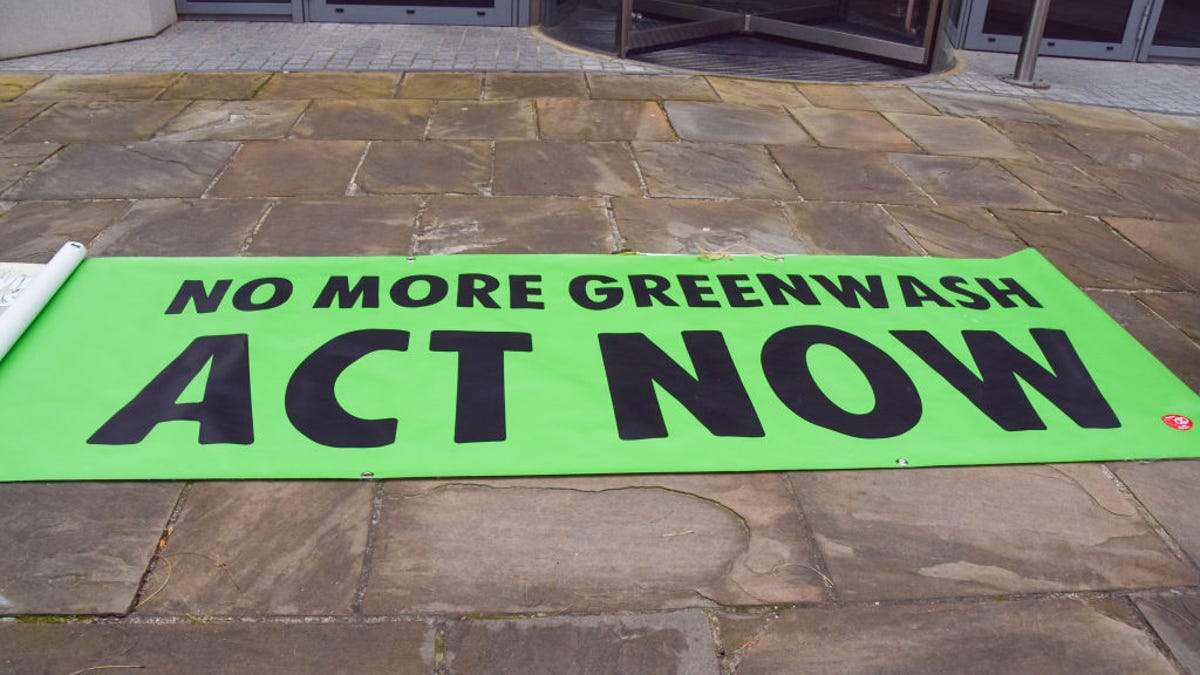'The Sham Must End': UN Cracks Down on Greenwashing at COP27
Its recommendations call for greater scrutiny of net zero claims.

Fudging net zero claims is a common greenwashing tactic.
In a win for the environment and anyone who doesn't like to be taken for a ride by false sustainability claims, the UN is cracking down on greenwashing. In a report issued Tuesday at the COP27 climate summit in Egypt, the organization laid out recommendations for how companies, financial institutions and cities must calculate their net zero status -- that is, how close they actually are to eliminating their greenhouse gas emissions.
Fudging net zero claims is a favored greenwashing strategy among companies. They will say they're carbon-free thanks to strategies including buying carbon credits, while simultaneously pursuing new fossil fuel projects and continuing to emit greenhouse gases. It makes them look like they're living up to their environmental responsibilities, while, in the words of UN Secretary General António Guterres, they're actually taking advantage of "loopholes wide enough to drive a diesel truck through."
But no more. The UN's report aims to close the loopholes by laying out 10 steps to bring integrity, transparency and accountability to net zero claims. They should help everyone better understand the true extent of the climate efforts being undertaken by companies, especially those claiming to be sustainability leaders.
"Using bogus 'net zero' pledges to cover up massive fossil fuel expansion is reprehensible," Guterres said Tuesday at COP27. "It is rank deception. This toxic coverup could push our world over the climate cliff. The sham must end."
In its report, which was drawn up over the past seven months by a panel of independent experts, the UN stipulated that companies can't claim to be net zero if they are not in line with targets set out by the agency's Intergovernmental Panel on Climate Change. These include cutting global emissions by 45% by 2030. The use of carbon offsets will not be allowed in the short term, and only sparingly in the long term.
"This is about cutting emissions, not corners," said Catherine McKenna, chair of the UN expert group that assembled the report. "Our road map provides clear standards and criteria that must be followed when developing net zero commitments. Right now, the planet cannot afford delays, excuses or more greenwashing."
Companies must also present plans to transition to renewable energy alongside their emissions targets, which are to include details about how they will support workers currently in the fossil fuel industry. They will be duty-bound to publicly advocate for climate action and won't be allowed to fund lobbying for fossil fuels.
All existing voluntary net zero pledges must be revised by the first half of 2023 to fit in with the new requirements, Gutteres said. The report also recommended a move away from voluntary pledges and toward more regulation.
The report demonstrates the need for enforceable measures to prevent greenwashing, said Hana Heikenen, senior attorney at the Center for International Environmental Law in a statement. "Avoiding overshoot of 1.5 degrees Celsius requires deep emissions cuts now, and leaves no room for reliance on fossil fuel prolonging carbon capture and storage or other technofixes, which only delay needed climate action," she said.

